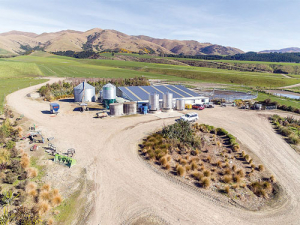Data from the Real Estate Institute of New Zealand (REINZ) show 427 farm sales for the three months ended June 2018 vs 459 in the three months ended June 2017. That’s a drop of 32, or 7%.
The median price per hectare for all farms sold in the three months to June 2018 was $21,745 vs $25,993 in the three months to June 2017 (-16.3%).
Over the year to June 2018, 1480 farms were sold -- 17.0% fewer than in the year to June 2017. By sector, that is 1.2% fewer dairy farms, 3.2% fewer finishing farms, 25.0% fewer arable and 28.0% fewer grazing farms sold over the period.
However, REINZ says the winter market “remains resilient”. It says the REINZ all-farm price index rose 3.7% to June 2018 vs June 2017. Unlike the median price per hectare, that index adjusts for differences in farm size, location and farming type.
REINZ rural spokesman Brian Peacocke said, “Accepting the anticipated easing in volumes during the early winter period of June, sales figures for the most recent three-month period indicate an encouraging degree of resilience.”
That applied particularly to the drystock sector, with strong performances in the finishing and grazing categories, and steadiness in the horticulture industry.
“Rural New Zealand has embarked upon the winter in good shape, with solid confidence after a very good autumn, forecasts of a good dairy payout and ongoing optimism about export returns from beef, lamb and horticulture.
“On a precautionary note, the pervading presence of Mycoplasma bovis remains the dominant biosecurity issue, with... a devastating impact on those farming and rural businesses affected,” said Peacocke.
“Early spring 2018, when dairy and beef animals are likely to be under maximum stress, is anticipated to be the real test for the government- and industry-backed eradication programme, a period nervously awaited by the farming sector and the wide variety of rural industries providing back-up to the primary industries.”
















